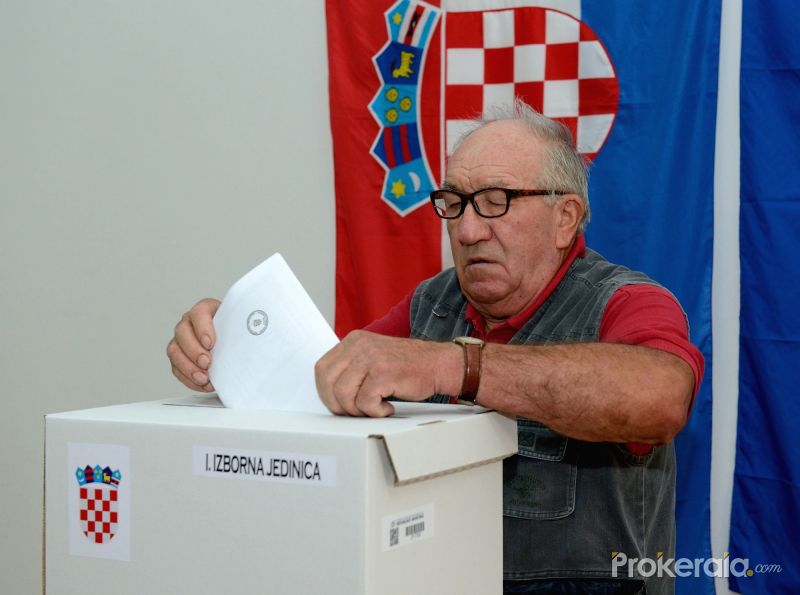-
Tips for becoming a good boxer - November 6, 2020
-
7 expert tips for making your hens night a memorable one - November 6, 2020
-
5 reasons to host your Christmas party on a cruise boat - November 6, 2020
-
What to do when you’re charged with a crime - November 6, 2020
-
Should you get one or multiple dogs? Here’s all you need to know - November 3, 2020
-
A Guide: How to Build Your Very Own Magic Mirror - February 14, 2019
-
Our Top Inspirational Baseball Stars - November 24, 2018
-
Five Tech Tools That Will Help You Turn Your Blog into a Business - November 24, 2018
-
How to Indulge on Vacation without Expanding Your Waist - November 9, 2018
-
5 Strategies for Businesses to Appeal to Today’s Increasingly Mobile-Crazed Customers - November 9, 2018
Croatia’s conservatives win vote but uncertainty remains
The People’s Coalition gathered around the SDP party will have 54, while the Most (“Bridge”) coalition will have 12.
Advertisement
The election was called after the government of technocrat Tihomir Orešković collapsed in June – just five months after taking office.
The nearly year of political deadlock has blocked reforms the former Yugoslav republic badly needs as it emerges from a six-year recession. Orešković’s rule was marred by coalition infighting that ended with the resignation of the HDZ leader and deputy prime minister over controversial business links, and brought global criticism over increasing nationalism that has strained already frail relations with neighboring Serbia.
Analysts here worry about a similar scenario likely to happen this time and prolonged talks on forming a government and potentially another election.
Some 3.8 million Croatians are eligible to vote.
A Social Democrat-led four-party alliance is predicted to win about 60 out of 151 seats in parliament. Andrej Plenkovic, the new HDZ leader, has promised a “Europe oriented government”.
The HDZ, which led the country through its first turbulent years of independence and war after the break-up of Yugoslavia 25 years ago, will face a fight from the SDP, whose leader Zoran Milanovic still held out hope of forming a government.
Milanovic, 49, campaigned on ultra-nationalist rhetoric, trying to lure conservative voters to his side.
The more moderate leader, who took over from right-leaning Tomislav Karamarko earlier this summer, said Sunday he expects high turnout among Croatia’s almost 3.8 million voters.
President Kolinda Grabar Kitarovic urged more Croats to come out and vote, saying the country’s future is in their hands.
“The following months and years are truly decisive for Croatia, and today we have to be serious”, Grabar Kitarovic said.
“We have witnessed low turnout, that’s not the citizens’ fault, it’s ours”, he said, blaming the election loss on the poor turnout on Sunday.
According to the BBC, a weak governmental coalition is not likely to be successful in implementing reforms required by the European Union, especially with regards to the country’s economy, which is overly dependent on tourism along the Adriatic coast.
His view is shared by many in the country which emerged from a six-year recession in 2015. However, unemployment hovers around 14 percent.
“Most will seek impossible things and they (coalition partners) won’t be able to agree”, said Josip Bergovec, a man in his 60s from Zagreb.
Advertisement
“The following months and years are truly decisive for Croatia, and today we have to be serious”, Grabar Kitarovic said.





























